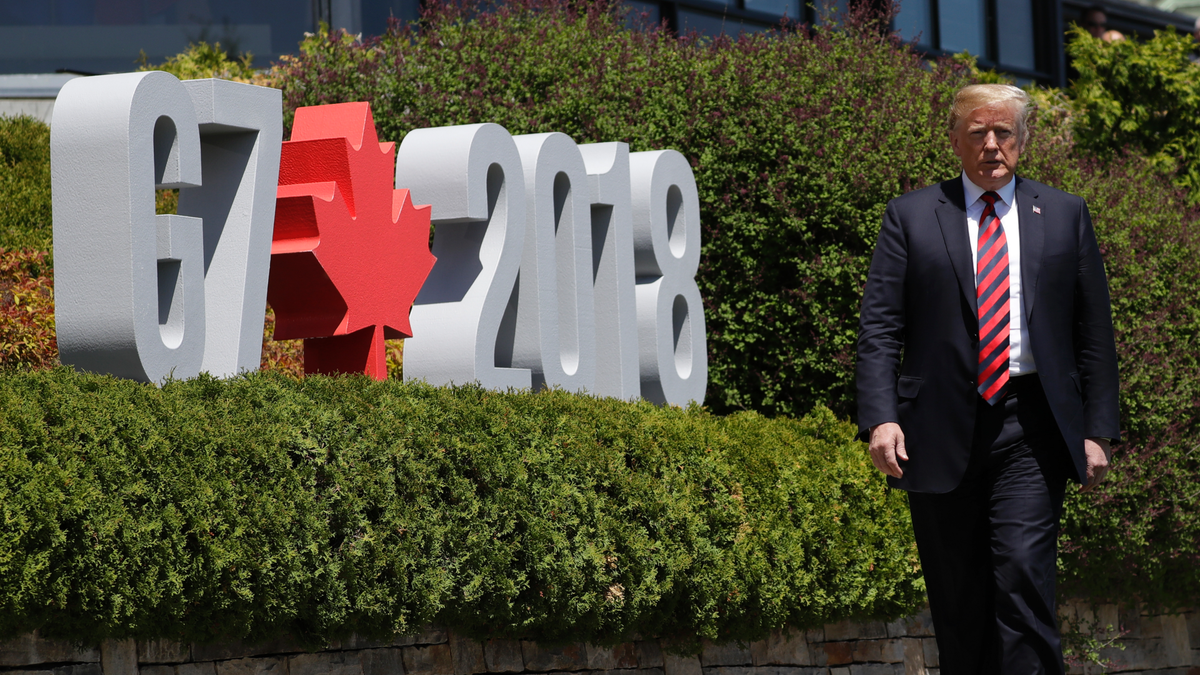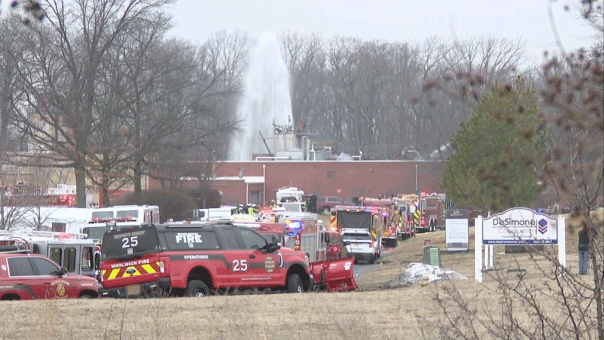
WASHINGTON – With enemies like these, who needs friends?
Stepping onto the world stage for a pair of high-profile summits, President Donald Trump is scrambling the usual breakdown of allies and adversaries. In the span of a few days, he's embraced Russia and North Korea while pushing away America's closest friends, like France, Canada and Germany.
It's long been Trump's modus operandi to keep people on their toes, unable to predict what he'll do next. But the impulse to pick fights with countries the United States relies on for solidarity around the world is striking many as a step too far.
Joel Rubin, a deputy assistant secretary of state in the Obama administration, said the dual moves were "completely antithetical" to America's foreign policy objectives. He predicted it would inflict major damage to U.S. standing in the world.
"If Obama had done that, the criticism coming down on him would have been a fusillade, coming from Capitol Hill and congressional Republicans," said Rubin, who now teaches at Carnegie Mellon University. "But there's nary a whimper."
The apparent realignment has played out with dizzying speed as Trump traveled Friday to Canada for the annual Group of 7 summit. From there, he planned to jet to Singapore for an unprecedented summit with the leader of North Korea, which is technically still in a state of war with the U.S. and considered by Trump's administration to be a state sponsor of terrorism.
Ironically, Trump was expected to receive a far warmer reception from Kim Jong Un than from U.S. allies in the West.
He descended on the small Canadian town of La Malbaie to as frigid a welcome as an American president has ever seen from the longtime allies. Even before they broke into open conflict, Trump was the odd man out in a group that favors global cooperation and has focused on issues like climate change.
Yet it was his abrupt call to reinstate Russia — kicked out of what was formerly the G-8 over its annexation of Crimea several years ago — that seemed to come out of nowhere.
"They threw Russia out," Trump said as he left the White House for Canada. "They should let Russia come back in, because we should have Russia at the negotiating table."
It was enough to appall traditional Russia hawks, even those in Trump's Republican Party. Sen. Ben Sasse, R-Neb., called the move "weak" and added that Russian President Vladimir Putin "is not our friend and he is not the president's buddy." And Sen. John McCain, R-Ariz., said Trump was rewarding a country that is "assaulting democratic institutions all over the world."
"The president has inexplicably shown our adversaries the deference and esteem that should be reserved for our closest allies," McCain said. "Those nations that share our values and have sacrificed alongside us for decades are being treated with contempt."
And other G-7 nations immediately signaled they had zero interest in welcoming Moscow back into the club. A senior British government official responded to Trump by stating that Russia would need to "change its approach" before any conversations about rejoining the G-7 could occur. The official wasn't authorized to comment by name and requested anonymity.
Leading up to the meeting, French President Emmanuel Macron and Canadian Prime Minister Justin Trudeau openly criticized Trump's new tariffs. Signaling he will not back down, Trump hurled himself into the fight, lashing out on Twitter about "unfair trade deals." Privately Trump complained about having to attend the meeting at all, frustrated over the criticism, the progressive agenda and preferring to focus on the upcoming North Korea summit.
The conflict fueled speculation about a decisive shift in these global alliances toward what some have called the "G-6 plus one" — a reference to the U.S. standing alone — and appeared to mark a turning point in Trump's relationships with longtime allies.
While he attended the Canada gathering, Trump showed up late and the White House said he planned to leave early, adding that a deputy assistant to the president — a mid-level aide — would remain in his place for the rest of the meetings.
With the U.S. the odd man out, there were serious doubts that a typical G-7 "communique" — a joint statement from the participants describing the progress achieved during the summit — could be issued. Some diplomats were even floating the possibility publicly that a communique could be included that didn't involve the United States.
Yet Trump has made clear that even if his approach should weaken the alliance, he doesn't particularly mind.
In contrast with previous points in the Trump administration when advisers sought to reassure a nervous world that "America First" does not mean "America alone," Trump has now fully embraced the nationalistic policies he espoused on the campaign. The president, who has railed over trade deficits with other countries, views his protectionist trade moves as key to his base and has grown increasingly frustrated with the leaders over their critiques.
Increasingly confident in his judgment, Trump is also taking less advice from aides and has shed some of his more traditional advisers.
Trump's recent tariffs follow a year of policy making that has distanced the U.S. from traditional allies, including Trump's decision to withdraw the U.S. from the Paris climate accord and the Iran nuclear deal. They are also a fresh reminder that efforts by other leaders to woo Trump in hopes of swaying his opinion have been largely unsuccessful. Both Macron and Trudeau have sought to turn on the charm in the past with little to show for it.
"What worries me most is the fact that the rules-based international order is being challenged — quite surprisingly not by the usual suspects, but by its main architect and guarantor, the U.S.," said European Council President Donald Tusk.
Heather Conley, director of the Europe program at the Center for Strategic and International Studies, said Trump seems to draw no distinction between allies who share the U.S. values of market economics and democracy, and adversaries who do not, and in the process he's upending decades of American foreign policy.
"The president is pushing us to test what an ally means to the U.S.," Conley said. "I fear we'll see the answer to that test when we are in a moment of great need and our allies are no longer willing to support us."
___
Lucey reported from La Malbaie, Quebec. Associated Press writer Matthew Pennington contributed to this report.









































